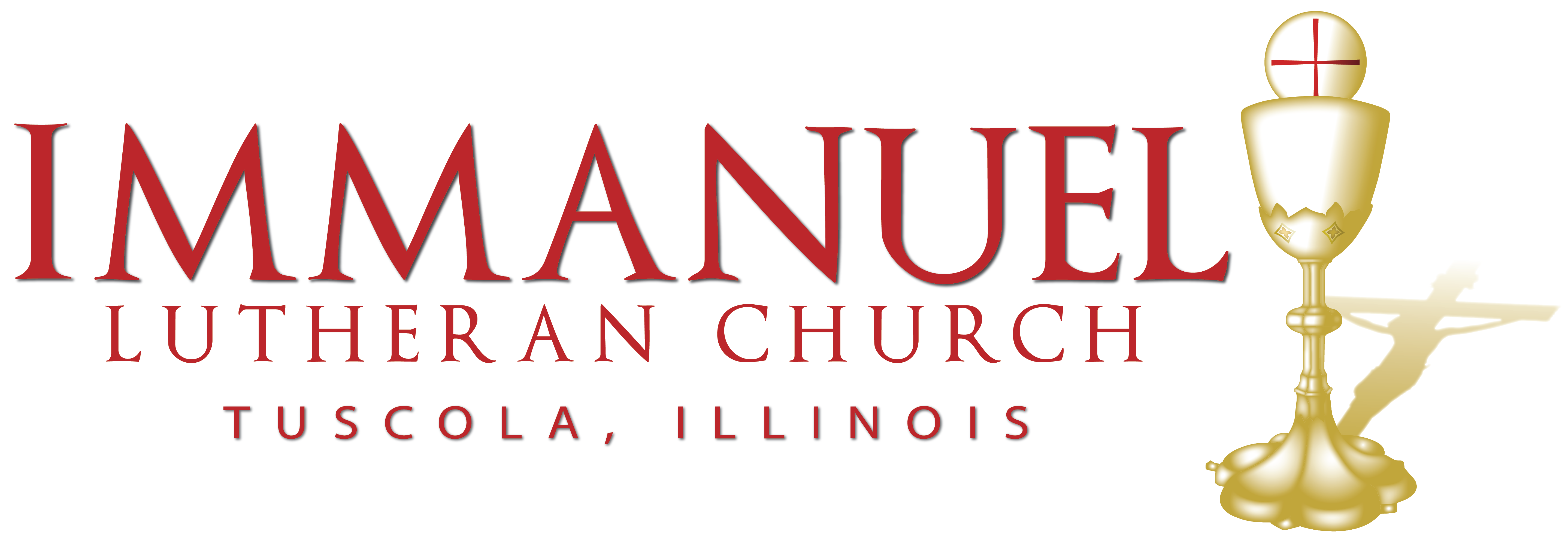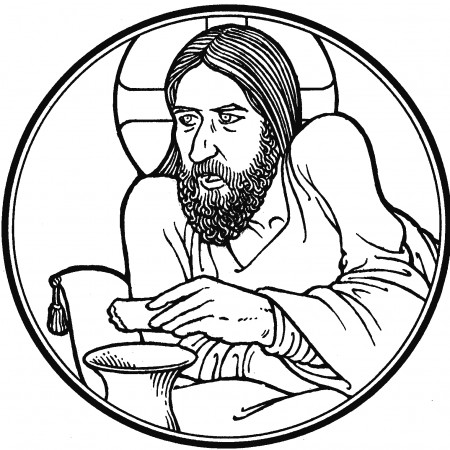The Seventeenth Sunday after Trinity
Luke 14:1–11
+ IN NOMINE IESU +
The man with dropsy stood as a living picture of the Pharisees because they had a similar disease. Dropsy is a disease that causes the retention of water in the extremities, the stomach, and around the heart. The similarity is found not in these symptoms but in another. In the ancient world, the paradoxical symptom of dropsy was an unquenchable craving for drink though the body was already inflated with fluid—a craving when indulged served not to ease but to feed the disease. So the more that he is swollen with excess of water, the more he thirsts. For it is not thirst that drives him but a disease.
It’s a tendency with which we’re quite familiar. For we tend to think that if we indulge our desires they will be satisfied and go away. But it never turns out that way. When we scratch an itch, it only itches more. When we crave a certain food and indulge that craving, we only crave it more. When we desire newer clothes or a newer car, when we desire nicer things, more money, more land, that this desire doesn’t go away, but is simply fed so that we desire more. So it also goes with every illicit desire of the flesh. We think that if we indulge our sinful flesh that its desires will be satisfied. But it never works. For the desires of the flesh simply desire more. We don’t curb our fleshly desires by satisfying them, but by denying them. It is a disease, original sin.
And so our Lord tells a parable about humility and pride, summarizing it with these words: “Everyone who exalts himself will be humbled, and he who humbles himself will be exalted” (Luke 14:11). “The ancient Greeks feared above all things the state of mind they called hubris—the inflated spirit that comes with overmuch success” (Sayers, “The Other Six Deadly Sins,” 100). It is the downfall of Oedipus the King, Victor Frankenstein, and Satan himself. What the Greeks called hubris, “Christianity traced back to the root sin of pride, which places man instead of God at the center of gravity . . .” (Sayers, “The Other Six Deadly Sins,” 100). Pride goes before destruction, and a haughty spirit before a fall (Prov 16:18).
Pride “is the sin of trying to be as God. It is the sin that proclaims that man can produce out of his own wits, and his own impulses, an his own imagination the standards by which he lives: that man is fitted to be his own judge. It is pride that turns man’s virtues into deadly sins by causing each self-sufficient virtue to [become] its opposite” (Sayers, “The Other Six Deadly Sins,” 99). Pride is the essence of sin. Pride seeks its own advantage. It sets itself above and against God and His Word. This is a sin against the First Commandment. Every sin says to God, “I know what you want, how you say I should live, but I know better; I have a better law than yours.” So every sin is a sin against the First Commandment. Every sin makes oneself one’s own god. Every sin is pride, an exaltation of oneself.
This is how it went in the Garden of Eden. Since the fruit from the tree forbidden by God seemed to be good for food, would make them wise and like God, they took it and ate. They sought to exalt themselves. They wanted to make themselves like unto God.
The irony of this is that in so doing they weren’t exalted. They were instead humbled, and they lost their place of exaltation. They were already wise. They were already like God. For they had God’s Word, which created them in God’s own image and likeness. They gained nothing and lost everything.
Likewise with all your sins. Your pride seeks your own exaltation. And yet it only leads to humiliation. A child who doesn’t listen to his parents’ bidding sets himself over his parents. He exalts himself above those who have been placed above him by God. He breaks the Fourth Commandment. Thus setting himself above, exalting himself above God himself. And yet this very act leads to his humbling for he comes not only under the wrath of his parents but also under the wrath of God who gave the command “Honor your father and mother.”
This can be applied to every situation in every relationship that each of you have. Are you a father, mother, son, daughter, husband, wife, or worker? Have you been disobedient, unfaithful, or lazy in your calling as one of these? Have you been hot-tempered, rude, or quarrelsome in your calling as one of these? Have you hurt someone by your words or deeds in your calling as one of these? Pride always seeks to exalt yourself over others: sons and daughters over fathers and mothers, husbands over wives and wives over husbands, workers over employers. And why? Because you think you know better than God. You think you know how to live better than what God revealed in His Word. You don’t trust that His way is best and will actually lead to what you need and desire most. And so you exalt yourself. You take for yourself what God would have gladly given in His time and His way. You scratch the itch, thinking it will go away, but you just want more. And this only brings humiliation. It only brings you under God’s wrath and punishment.
The answer is not to get more of what you desire. The answer is not to keep scratching the itch of your sinful flesh. It is rather to deny it, to humble yourselves under the Word of God and do what it says. Empty yourself of all pretense, of everything that you think you deserve. Empty yourself of all your merits, your worthiness, and your own status, and listen to the Word of God and keep it. For everyone who exalts himself will be humbled, and he who humbles himself will be exalted.
And there is the gospel. Notice the change in the subject from “everyone” to “he,” from a plural collective to a singular. There is only one who has humbled himself, Jesus Christ, our Lord. Jesus humbled himself to dwell among us. He emptied himself of all divine rights to take on the form a servant, to suffer death, even the shame of death on a cross. God became man, not by changing the divinity in the flesh but by taking up humanity into God. He humbled himself and became man. And in this man is exalted, raised up, because God is a man.
Thus, you too are exalted. You are exalted because Christ became what you are to make you what He is. You are exalted with the work of Christ for you. You are emptied of your sin to be filled with the righteousness of Christ. You are emptied of your own merits and your worthiness, which is death and hell, and filled with the merits and worthiness of Christ, which is life and eternal salvation. You are emptied of your own status as a sinner and given His status as Sons of God the Father.
And so the host of the Feast, God in human flesh, calls to you: “Friend, move up higher. Move from down there where you are sitting to sit with me up here. Have a seat at my table in my Father’s house. Come as those humbled by your sin, and be emptied of it to be filled with eternal things, holy things, divine things.” Consume the Body and Blood of the Son of God, who is seated at the right hand of the Father. He has emptied himself to come to you in humble bread and wine, so that you will be exalted to be where he is. And you are where He is. For you are gathered together with the holy angels and archangels, with the whole company of heaven, in the heavenly throne room. For you are in heaven on earth. He has come down so that you will be raised up. He has humbled himself, so that you will be exalted. God has dwelt with man as a man, so that you will dwell with God forever. He is Immanuel, God with us. God is with you in Christ, and in Christ you are with God. For he who humbled himself for you is exalted. And in Him so are you. Amen.



0 Comments